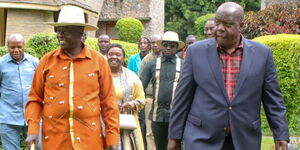Learning across public schools in the country could be brought to a premature halt after the government failed to disburse adequate capitation to cater for students' second-term education.
The Kenya Secondary School Heads Association (KESSHA) on Monday revealed that delays in the disbursement of funds had forced them to make difficult decisions regarding resource allocation.
Led by its Secretary General, Abdi Noor, KESSHA noted that the delay in releasing the funds was derailing learning in most institutions, as they struggled to sustain operations and pay suppliers.
In its plea to the government, KESSHA is now proposing that parents contribute a share of the funds if schools are to remain operational throughout the term.
According to Noor, the cash crunch in schools has also forced some institutions to lay off teachers employed by the Board of Management.
"A majority of the heads are playing hide and seek with the suppliers because there are no adequate funds to pay the suppliers. Qualified Board of Management teachers are laid off, compromising the quality of education," said Noor.
As per the funding policy, the government pays Ksh22,144 per student annually. The amount is paid in three tranches: Ksh11,122 in the first term, Ksh6,673 in the second term, and Ksh4,439 in the third term.
However, the KESSHA boss stated that in the first term, only Ksh8,818 was disbursed per student, leaving a deficit of Ksh2,304. He further noted that only Ksh3,471 per student was disbursed in the second term, resulting in a deficit of Ksh3,202.
While lamenting the delayed disbursement, Noor revealed that the government still owes schools Ksh7.6 billion and Ksh10.6 billion for the first and second terms, respectively.
He further proposed the revamping of the current funding system, citing several challenges, including rising inflation and an outdated disbursement formula.
"It was better when parents were paying a bit of the funds because there was what we called cost sharing. When the government is unable to pay schools, then parents will be able to do so," said Noor.
In addition to a cost-sharing system with parents, KESSHA is also proposing that Members of Parliament redirect part of their National Government Constituency Development Fund (NG-CDF) allocations to cater for the deficit.












